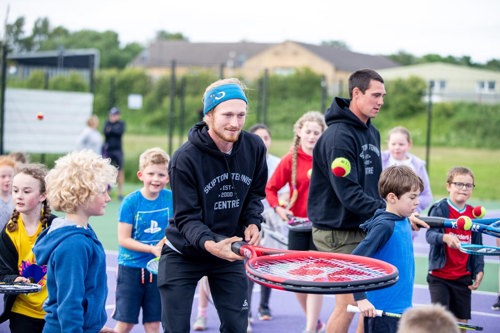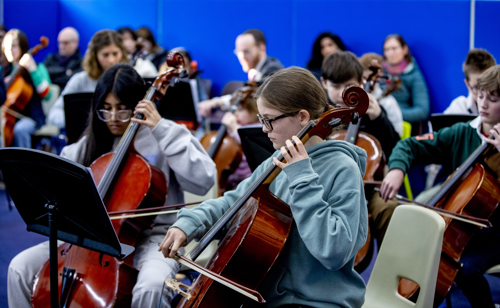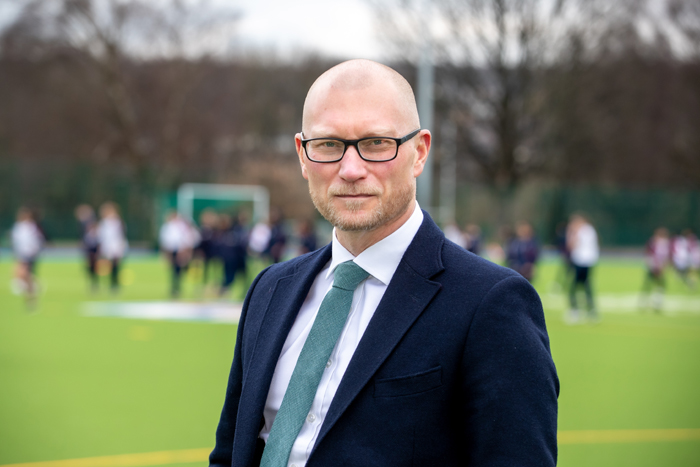Bradford Grammar School’s head, Simon Hinchliffe, reflects on the schools public benefit activities and explains the steps being taken to deepen their impact and expand their reach.
Public benefit courses through the veins of Bradford Grammar School (BGS). Our former Direct Grant tradition of widening access continues today in the shape of transformational, means-tested Assisted Places for 10 per cent of our pupils, funded chiefly by generous benefactors. Beyond that, we have developed meaningful partnerships with local primary schools, enabling our sixth formers and staff to deliver, for example, PE sessions, reading schemes and French lessons. Even the headmaster has been known to share his enthusiasm for rocks with Year 5 geologists at Frizinghall Primary across the road and, remarkably, I keep getting asked back!
Currently, we’re reshaping our various outreach and established partnership activities into something with clearer ambition and coordination. Speaking plainly, we feel there is more to be done to emulate best practice in our sector. We’re hopeful that initial conversations with the Bradford-based Education Alliance for Life Chances (EALC) will give rise to a more cohesive programme to further our reach and deepen our impact. Crucially, we are keen to be an active player in a network that prioritises collaboration and mutual benefit, learning as much as we share, and we’re open to exploring ways in which we might increase the resilience of BGS partnership activity given the growing external pressure our sector is under.
The EALC’s framework extends beyond schools and colleges, and this has appeal at BGS. Much of our partnership work is with individual charities, businesses, sport clubs and their governing bodies at a local and national level. Maybe it’s just a view from the boundary, but I wonder if such partnerships might benefit from greater visibility by a widening of the sector lens, which is trained primarily on independent school/state school activity, with partners, more often than not, name checked in that order?
Take sport, for instance. BGS is proud to work with Skipton Tennis Centre (STC) to foster youth tennis and physical activity programmes for hundreds of pupils annually from a variety of primary and secondary schools across West and North Yorkshire. The centre’s founder, Adam Cox, says the close relationship with BGS remains a cornerstone of STC’s ongoing success: “Our collaboration with Bradford Grammar School has not only amplified our reach but also deepened our impact within the community. Together, we’re not just teaching tennis and padel, we’re building a community where everyone has the opportunity to thrive, make friends and be social.” Similarly, we are a longstanding partner of The Brownlee Foundation, with whom we welcome thousands of young triathletes on campus every summer, and also the MCC Foundation, with our Hub being the first in the history of the scheme to provide finalists in the boys and girls cricket competition (naturally, we are delighted for them).

Beyond sport, BGS has begun a seven-year partnership with the internationally recognised NHS health project Born in Bradford (BiB). In their words, BiB aspires to “show how communities across our great city can join hands to become a living network of citizen scientists, helping to create a healthier and happier future for our children”. Meanwhile, in collaboration with the Royal Birmingham Conservatoire, we open our doors to young musicians from a wide range of schools in the north to participate in ‘Cello Gym’ workshops, playing pieces from Bach to Coldplay with multi-award-winning cellists.

Future work with the EALC might also enable greater acknowledgment and coordination of these partnerships. The Young Carers Scheme at BGS sits amongst this portfolio and has been running for nearly 15 years. Initially set up in collaboration with Barnardo’s by former colleague Louise Dixon, a dozen young carers from across Bradford spend time in our Sixth Form Centre to receive tuition and mentoring from Year 12 volunteers. Academic as well as emotional support is provided and, for a short while, carers can focus on themselves and not their responsibilities at home. Each two-hour session is mutually beneficial as BGS students develop useful tutoring and mentoring skills, and an appreciation of the challenges experienced by peers in our local community.

One sixth former who volunteers said: “I’ve thoroughly enjoyed my experience of the Bradford Young Carers scheme as it’s incredibly fulfilling to help other people and it’s helped me gain confidence when speaking to new people as well as developing transferrable skills that will be useful in later life as I’m aiming to become a teacher.”
If there’s a message (or plea) to convey, it’s about promoting awareness of the breadth of partnership work into which independent schools willingly commit themselves, sometimes as the focal point of activity, but also as supporting, perhaps bit-part, actors. Sensitivity to need and context, mutuality and learning from partners, these are the pillars of public benefit at BGS.
“‘More can be done to emulate best practice in our sector”
